10 Best Herbal Tinctures For Depression

Herbal tinctures for depression are concentrated liquid extracts made from various plants believed to support mental well-being.
Commonly used herbs include St. John’s Wort, valerian root, and passionflower, each known for their calming and mood-regulating properties. These tinctures are often preferred for their natural composition and minimal side effects compared to conventional antidepressants. However, they should be used under the guidance of a healthcare professional to ensure safety and effectiveness.
While they may offer relief for mild to moderate depression, they are not a substitute for professional medical treatment in severe cases.
Table of Contents
- 1. St. john's wort (Hypericum perforatum)
- 2. Valerian (Valeriana officinalis)
- 3. Maypop (Passiflora incarnata)
- 4. Licorice (Glycyrrhiza glabra)
- 5. Echinacea (Echinacea purpurea)
- 6. Chaste tree (Vitex agnus-castus)
- 7. Blessed thistle (Cnicus benedictus)
- 8. Heartworts (Leonurus cardiaca)
- 9. Black cumin (Nigella sativa)
- 10. Nux vomica (Strychnos nux-vomica)
1. St. john's wort (Hypericum perforatum)

Hypericum perforatum, commonly known as St. John's Wort, is a herbal remedy traditionally used to support mental health, particularly for mild to moderate depression.
Its tincture form is often preferred due to its concentrated active compounds, such as hypericin and hyperforin, which are believed to influence neurotransmitter levels in the brain. When used as a tincture, St. John's Wort is typically taken orally, often diluted in water or alcohol, and may be combined with other herbs for enhanced effects. It is important to note that St. John's Wort can interact with various medications, so consulting a healthcare professional before use is strongly recommended.
Despite its potential benefits, individual responses to the tincture can vary, and it is not a substitute for professional medical treatment in severe cases of depression.
2. Valerian (Valeriana officinalis)
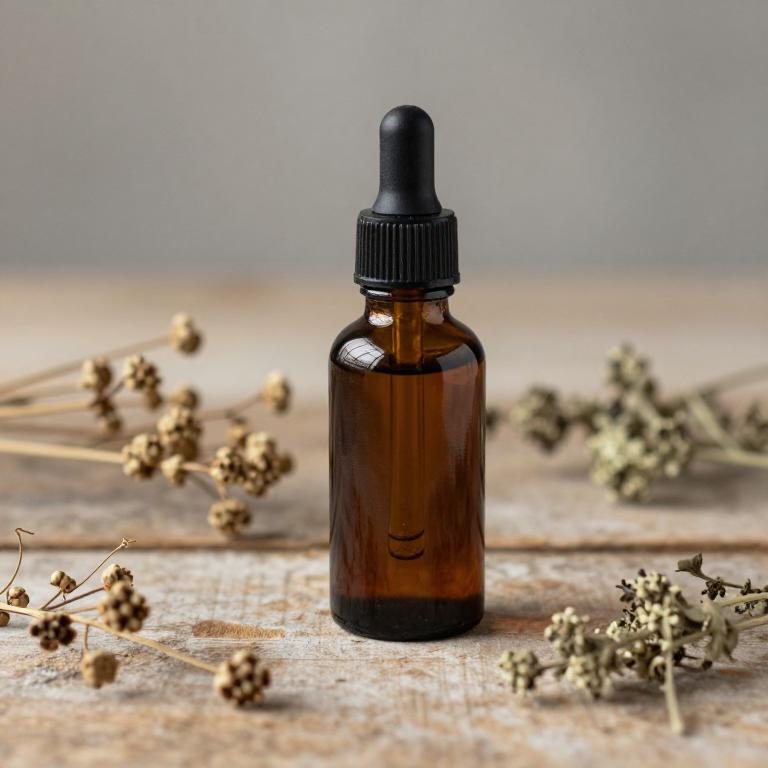
Valeriana officinalis, commonly known as valerian, is a traditional herbal remedy that has been used for centuries to address various nervous system disorders, including symptoms of depression.
Its active compounds, such as valerenic acid and essential oils, are believed to interact with the brain's neurotransmitters, potentially enhancing GABA activity and promoting a calming effect. Herbal tinctures made from valerian root are often used as a natural alternative to conventional antidepressants, offering a gentler approach with fewer side effects. While research on its efficacy for depression is still emerging, some studies suggest it may help alleviate mild depressive symptoms when used in conjunction with other therapies.
As with any herbal supplement, it is important to consult with a healthcare provider before use, especially for individuals with existing medical conditions or those taking other medications.
3. Maypop (Passiflora incarnata)
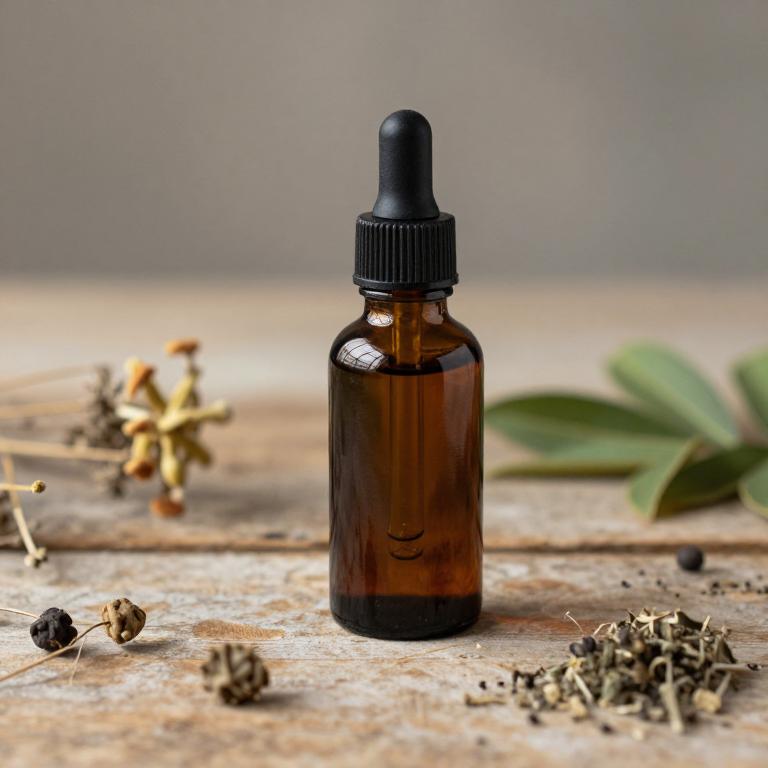
Passiflora incarnata, commonly known as wild passionflower, has been traditionally used for its calming effects and is often incorporated into herbal tinctures for managing symptoms of depression.
These tinctures are typically prepared by soaking the dried leaves and flowers in alcohol to extract the active compounds, such as flavonoids and alkaloids, which are believed to have anxiolytic and mood-stabilizing properties. Clinical studies suggest that passiflora incarnata may help reduce anxiety and improve sleep quality, both of which are commonly associated with depressive symptoms. As a natural alternative to conventional antidepressants, it is often used in complementary and alternative medicine practices.
However, it is important to consult with a healthcare professional before using passiflora incarnata tinctures, especially if taking other medications, to avoid potential interactions.
4. Licorice (Glycyrrhiza glabra)

Glycyrrhiza glabra, commonly known as licorice root, has been traditionally used in herbal medicine for its potential antidepressant properties.
Licorice tinctures are believed to support mood regulation by influencing the body's stress response and hormonal balance. The active compounds in licorice, such as glycyrrhizin and flavonoids, may contribute to its calming effects on the nervous system. However, long-term use of licorice tinctures can lead to side effects like hypertension due to its effect on aldosterone levels.
As with any herbal remedy, it is advisable to consult a healthcare professional before using licorice tinctures for depression, especially for individuals with pre-existing health conditions.
5. Echinacea (Echinacea purpurea)

Echinacea purpurea, commonly known as purple coneflower, is a traditional herbal remedy often used to support immune function, but it has also been explored for its potential benefits in addressing depression.
While scientific evidence on its efficacy for depression is limited, some studies suggest that its active compounds, such as alkamides and polysaccharides, may influence neurotransmitter activity and reduce inflammation, which are linked to mood disorders. Herbal tinctures made from Echinacea purpurea are typically prepared by soaking the dried plant material in alcohol, allowing for the extraction of bioactive components. These tinctures are often used as complementary therapy alongside conventional treatments for depression, though they should not replace professional medical care.
As with any herbal supplement, it is important to consult a healthcare provider before use, especially for individuals with existing health conditions or those taking other medications.
6. Chaste tree (Vitex agnus-castus)

Vitex agnus-castus, commonly known as chasteberry, is a traditional herbal remedy that has been used for centuries to support hormonal balance and emotional well-being.
Herbal tinctures made from Vitex agnus-castus are often utilized to address symptoms of depression, particularly in women experiencing hormonal fluctuations such as those during menstruation, pregnancy, or menopause. These tinctures are believed to influence the pituitary gland and regulate the production of luteinizing hormone, which can in turn affect mood and emotional stability. While research on its efficacy for depression is limited, many users report improvements in mood and reduced symptoms of anxiety and low energy.
As with any herbal supplement, it is important to consult with a healthcare provider before use, especially if taking other medications or having underlying health conditions.
7. Blessed thistle (Cnicus benedictus)

Cnicus benedictus, commonly known as Saint John's Wort, is a traditional herbal remedy that has been used for centuries to support mental wellness, particularly in the treatment of mild to moderate depression.
Its tinctures are prepared by extracting the dried plant material with alcohol, resulting in a concentrated form that is easy to dose and absorb. The active compounds in Cnicus benedictus tinctures, such as hypericin and hyperforin, are believed to enhance neurotransmitter activity in the brain, potentially improving mood and reducing symptoms of depression. While some studies suggest its effectiveness comparable to certain antidepressants, it is important to note that it may interact with other medications and should be used under the guidance of a healthcare professional.
As a natural alternative, Cnicus benedictus tinctures offer a holistic approach to managing depression, though they are not a substitute for professional medical care.
8. Heartworts (Leonurus cardiaca)
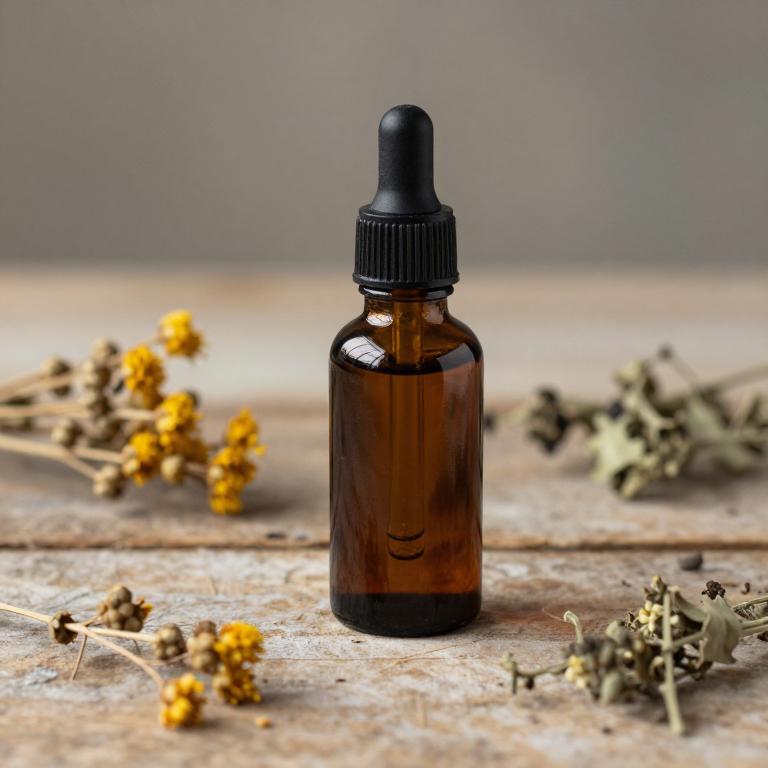
Leonurus cardiaca, commonly known as heart herb or red clover, has been traditionally used in herbal medicine for its potential mood-enhancing properties.
Herbal tinctures made from Leonurus cardiaca are believed to support emotional well-being and may help alleviate symptoms of mild depression by promoting a sense of calm and balance. The plant contains various bioactive compounds, including flavonoids and essential oils, which may contribute to its antidepressant effects. While scientific research on Leonurus cardiaca is limited, some studies suggest it may influence neurotransmitter activity, potentially improving mood.
As with any herbal remedy, it is advisable to consult a healthcare professional before use, especially for individuals with existing mental health conditions.
9. Black cumin (Nigella sativa)
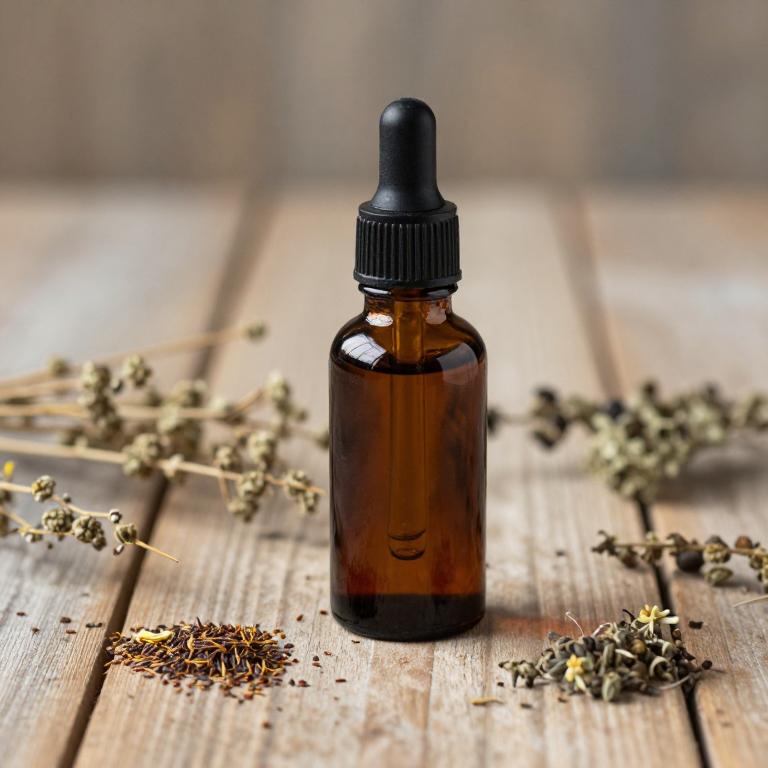
Nigella sativa, commonly known as black cumin, has been traditionally used in herbal medicine for its potential antidepressant properties.
Herbal tinctures made from Nigella sativa seeds are believed to support mood regulation by influencing neurotransmitter activity, particularly serotonin and dopamine levels. Research suggests that the active compound thymoquinone may help reduce symptoms of depression by mitigating oxidative stress and inflammation in the brain. While more clinical studies are needed, some individuals report improved mood and emotional resilience after using Nigella sativa tinctures as part of a holistic wellness approach.
As with any supplement, it is advisable to consult a healthcare professional before incorporating it into a treatment regimen for depression.
10. Nux vomica (Strychnos nux-vomica)
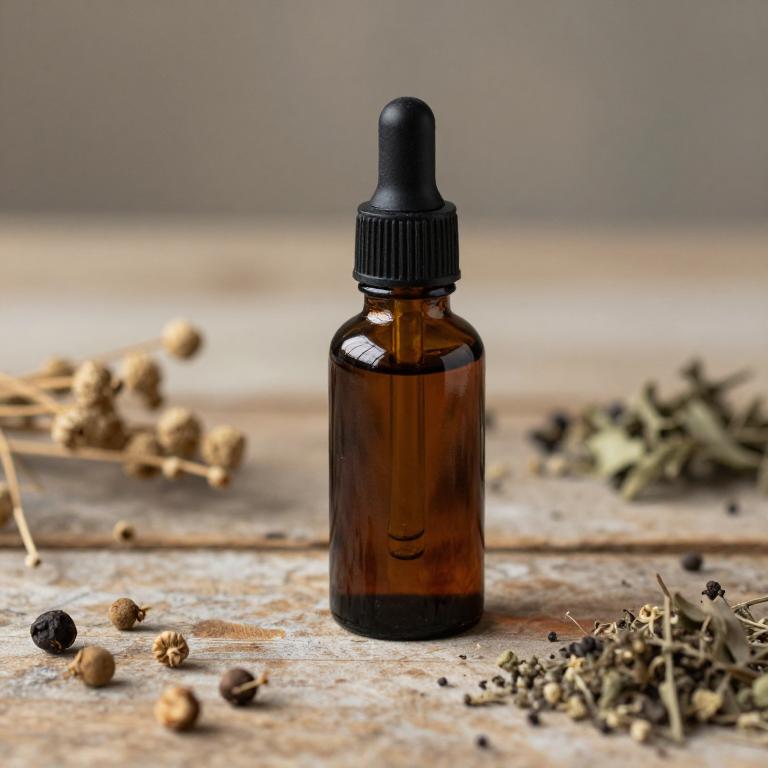
Strychnos nux-vomica, a traditional herbal remedy, has been used in some alternative medicine practices for its purported effects on mental health, including depression.
The tincture is prepared from the seeds of the plant, which contain alkaloids such as strychnine and brucine, known for their potent neurotoxic properties. While some historical texts suggest it may have been used to treat mood disorders, modern scientific research does not support its safety or efficacy for depression. Due to its high toxicity, the use of Strychnos nux-vomica tinctures is strongly discouraged without professional supervision.
It is important to consult a qualified healthcare provider before considering any herbal treatment for depression, as safer and more effective alternatives are available.